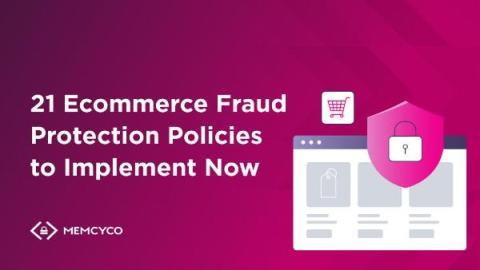Security | Threat Detection | Cyberattacks | DevSecOps | Compliance
January 2024
ITRC 2023 SMB Impact Report; Experts Predict Fraud Tsunamis in 2024 and Beyond
How To Avoid Scams on Facebook Marketplace
That new X cryptocurrency? It's a scam.
Best practices to implement self-doxxing in organizations
Seven Signs a Job Offer Is a Scam
How To Stay Safe From Gift Card Scams
Enhancing Workplace Security with Attendance Tracking Software
Scammers Target Owners of Missing Pets
Some particularly cold-hearted scammers are targeting users of lost pet forums with phony ransom demands, the BBC reports. “A BBC North West investigation found scammers have targeted scores of dog and cat lovers with threatening calls,” the BBC says. “They prey on owners by claiming to have their lost pets before demanding cash.
Protecting your business against impersonation attacks
Companies grow through mergers and acquisitions. Marketing teams promote new products. New products spawn new web domains. As brand names, URLs, and cloud IT infrastructure proliferate, so do enterprises’ vulnerability to online attacks. At the same time, security professionals working with limited resources find it increasingly challenging to maintain oversight of their online assets.
FTC Issues Warning About the Dangers of QR Code-Based Scams
The latest consumer alert posted by the federal trade commission (FTC) signals that the upticks in QR code-based scams are being seen by cybersecurity vendors are indeed a valid growing problem. You won’t need to go very far before you find a QR code. Restaurants commonly use QR codes to point you to a menu, parking lots use them to point you to a website to pay for parking, and according to the FTC, scammers use them to engage you in scams.
Beware of "Get to Know Me" Surveys
Trained security awareness professionals are aware that whatever someone says about themselves and personal experiences can be used against them in a social engineering scam. It is always good to share that message, at least once a year with co-workers, family members, and friends. I was reminded of this latest news story discussing a recent Instagram and TikTok trend. Basically, users are sent (or send) a “survey” that asks the receiver to describe themselves.
What To Do if You Get Scammed While Shopping Online
Online shopping has allowed buyers to find bargains and conveniently purchase from retailers all over the world. However, cybercriminals take advantage of the anonymity of online shopping to scam online buyers. If you get scammed while shopping online, you need to contact your credit card issuer, freeze your credit, change any compromised passwords, contact the online marketplace and report the scam to the FTC.
Beware of Fraudulent Charge Messages
Be careful of emails, SMS messages, or calls claiming to be from your bank about your card being used fraudulently. If this ever happens, call the phone number on the back of your card. This is a very common sort of social engineering fraud. Do not get scammed like TV host Andy Cohen did.
Polish Police Bust Dark Web Loan Extortion Ring: Fraudsters Face Up To 10 Years In Prison
Read also: Four people arrested over ChatGPT-linked ransomware attacks, a scammer charged for stealing $7.5M from two charities, and more.
Cryptocurrency wallet CEO loses $125,000 in wallet-draining scam
Anyone can get scammed. If you think you're somehow immune to being scammed, then, in my opinion, you're a prime target for being scammed. No one is too big, too clever, too security-savvy to avoid being duped because it's only human to make a mistake and screw up. And that certainly seems to be the case with Bill Lou.
















